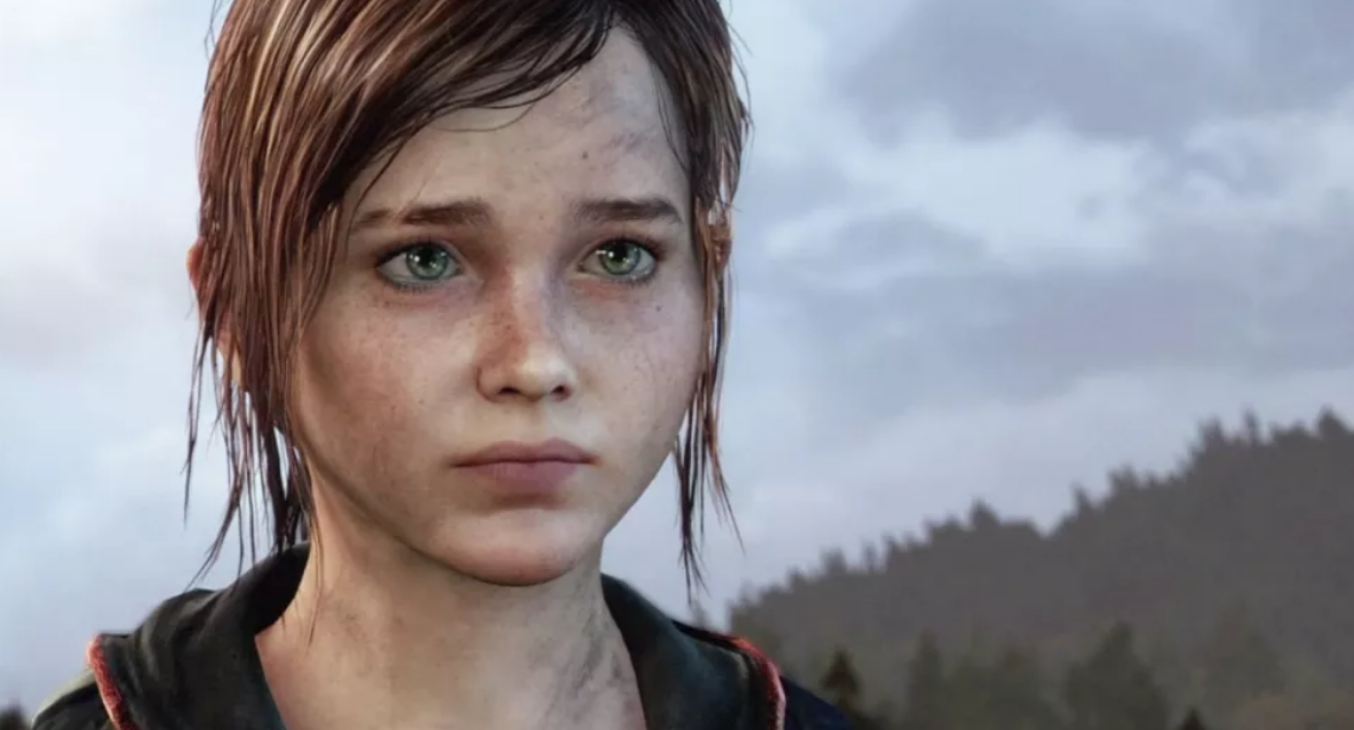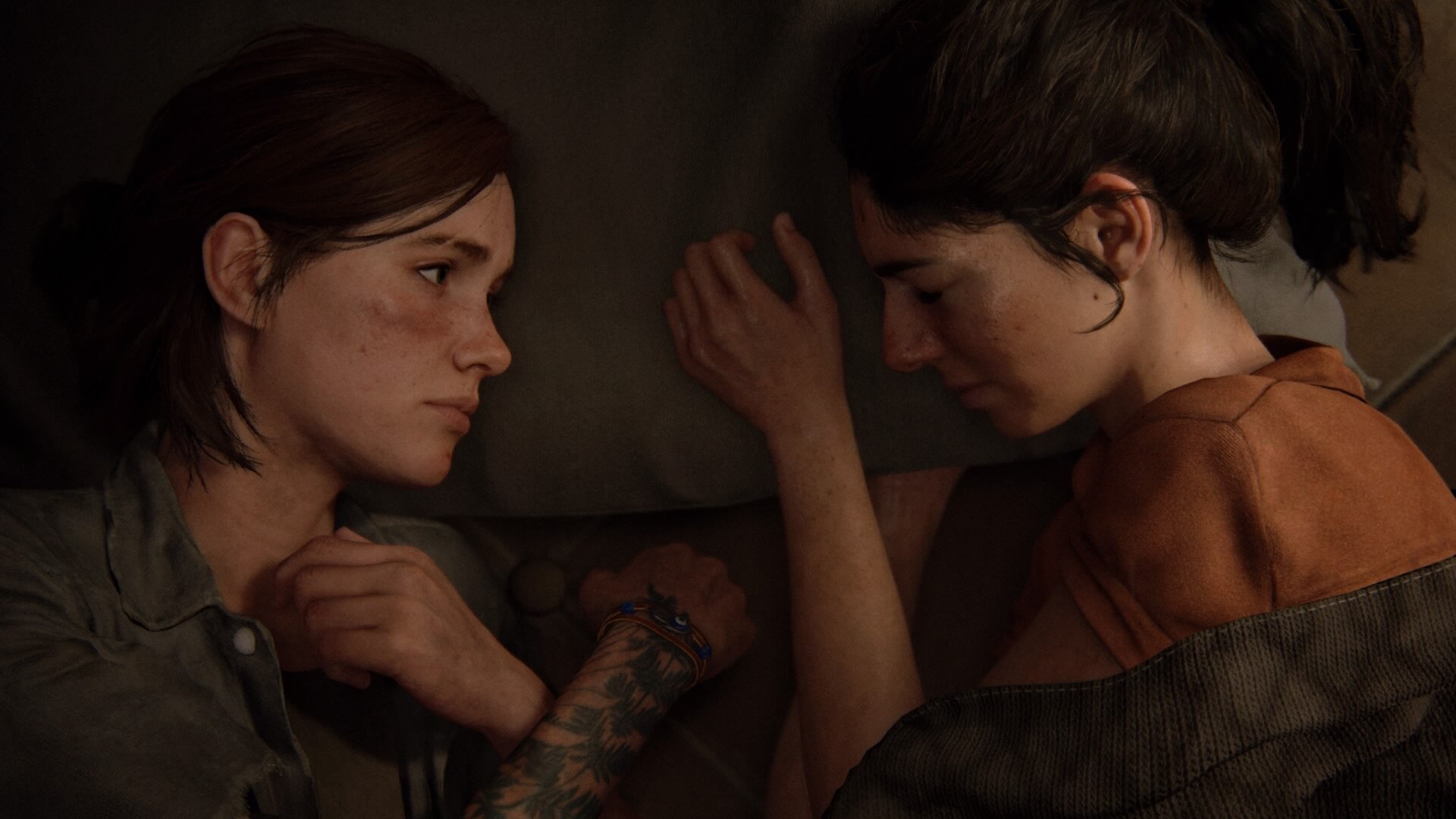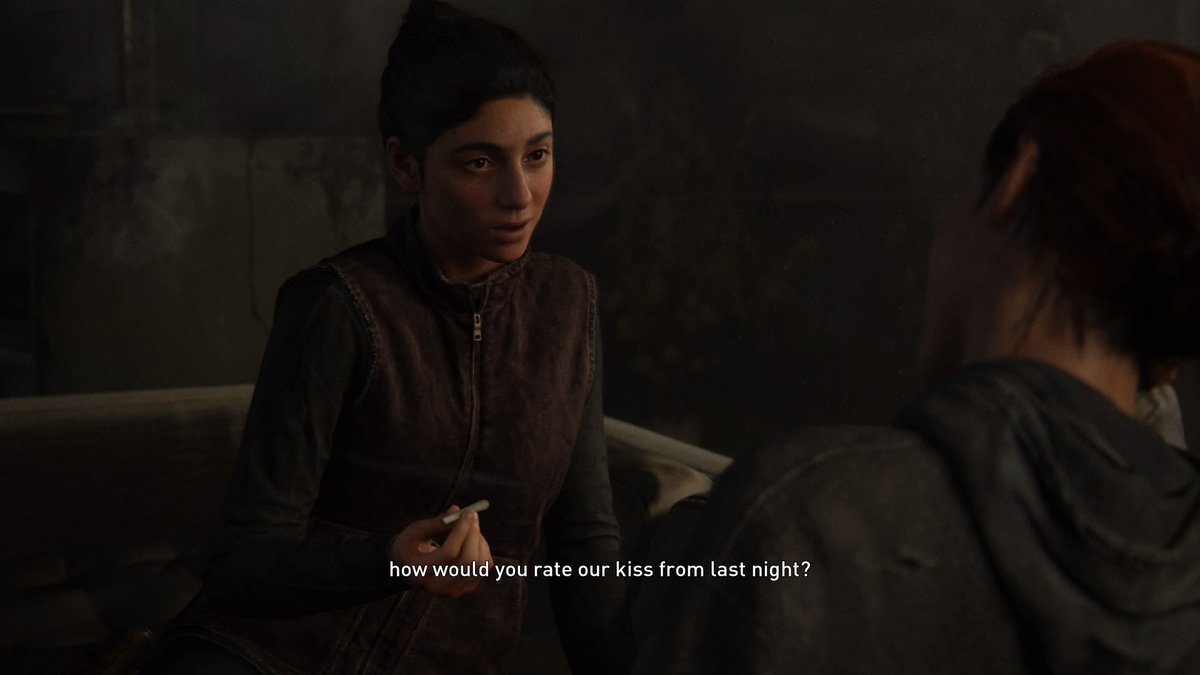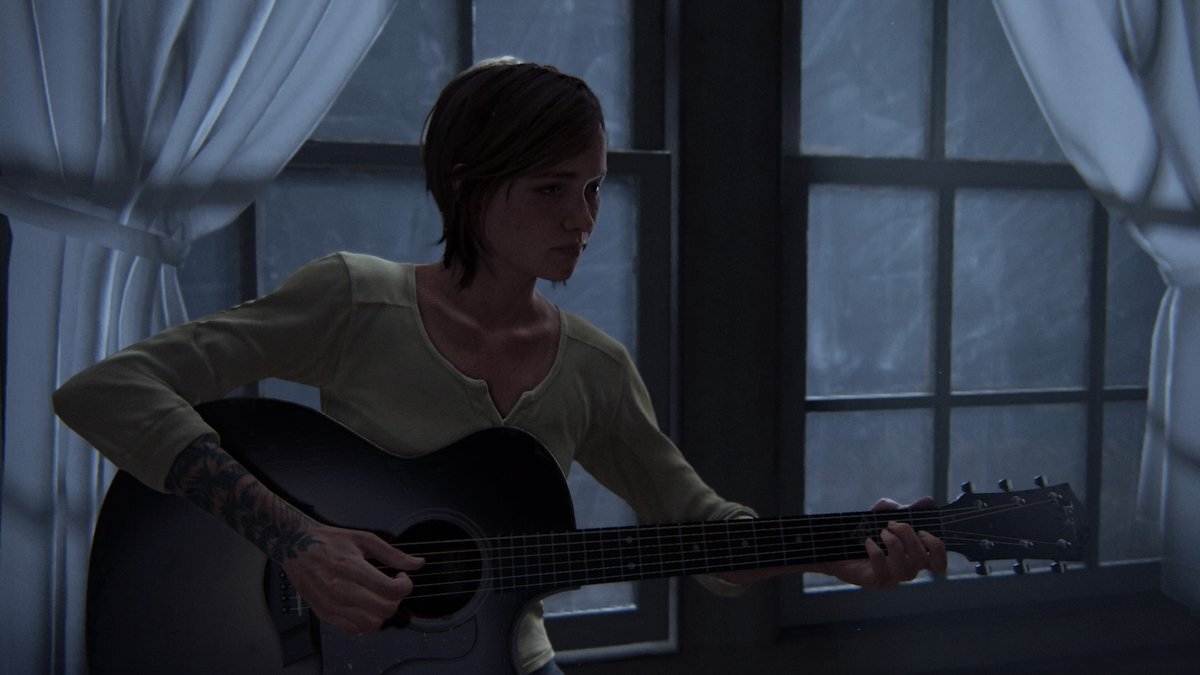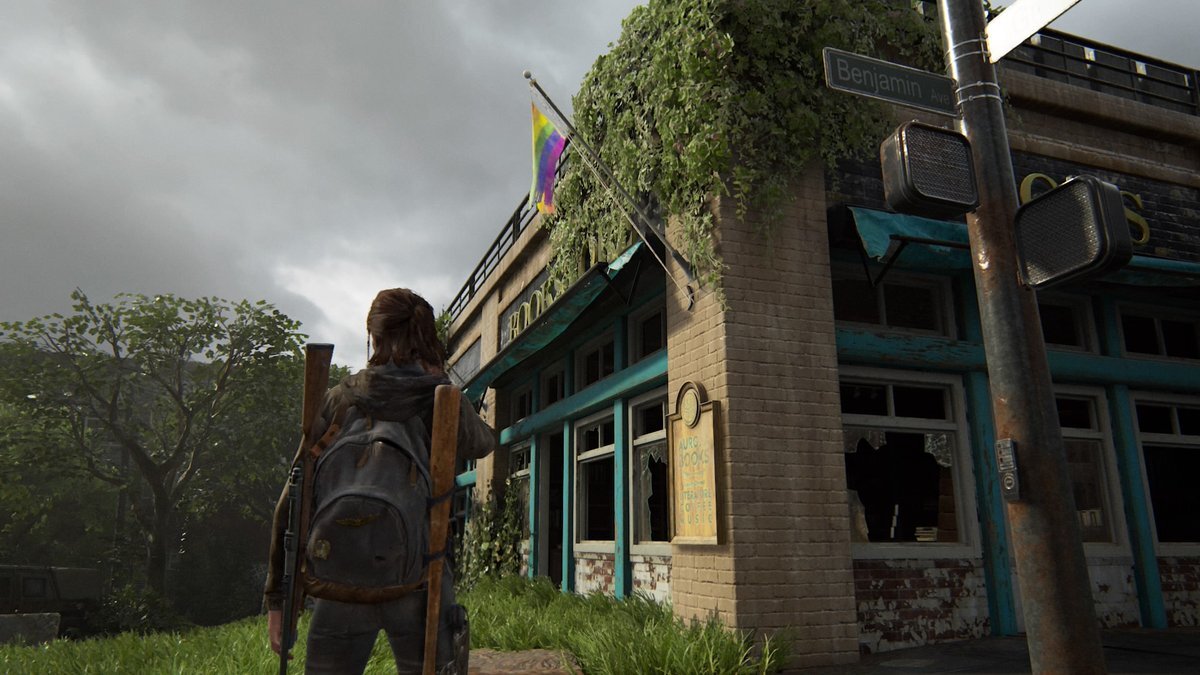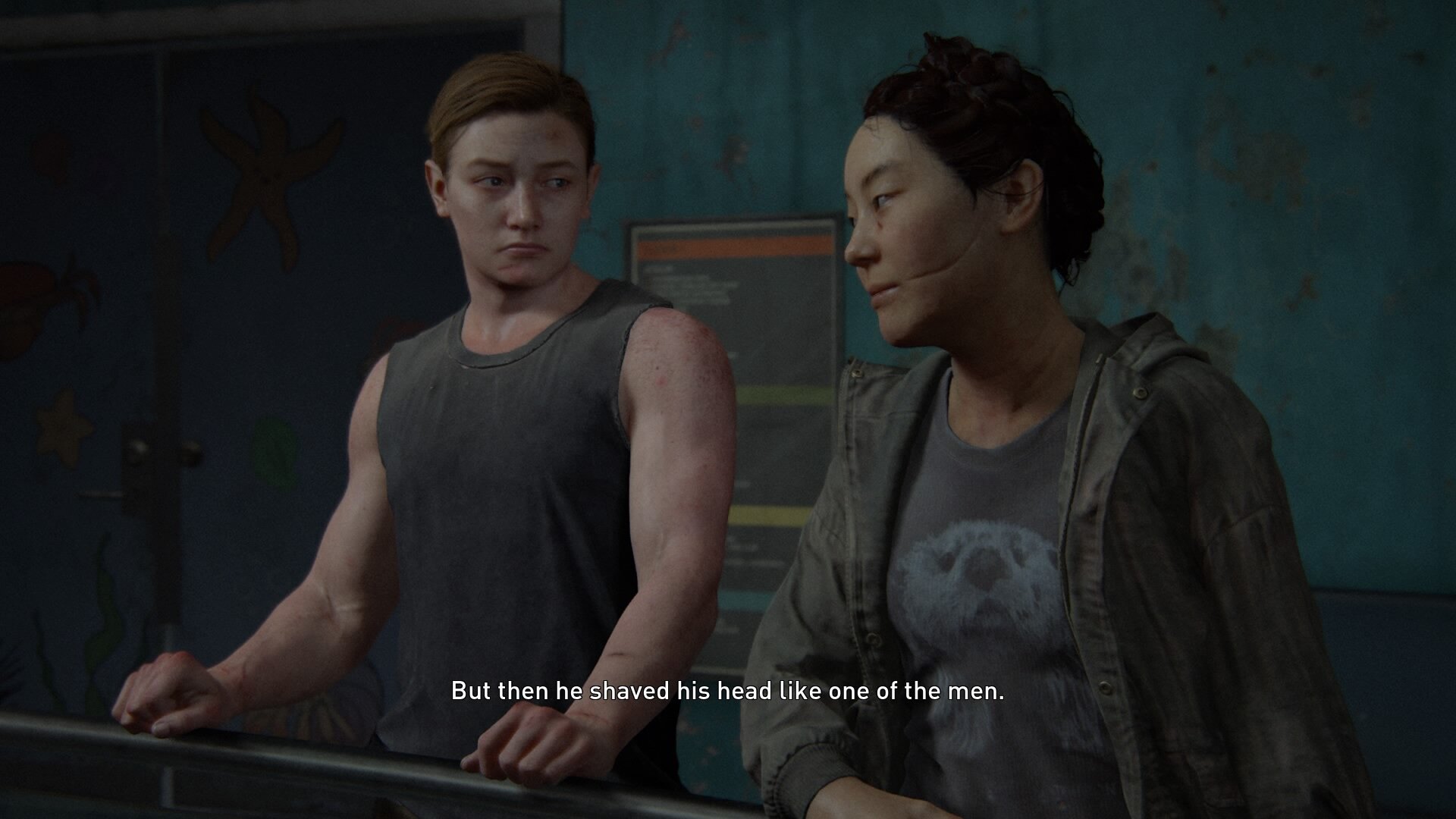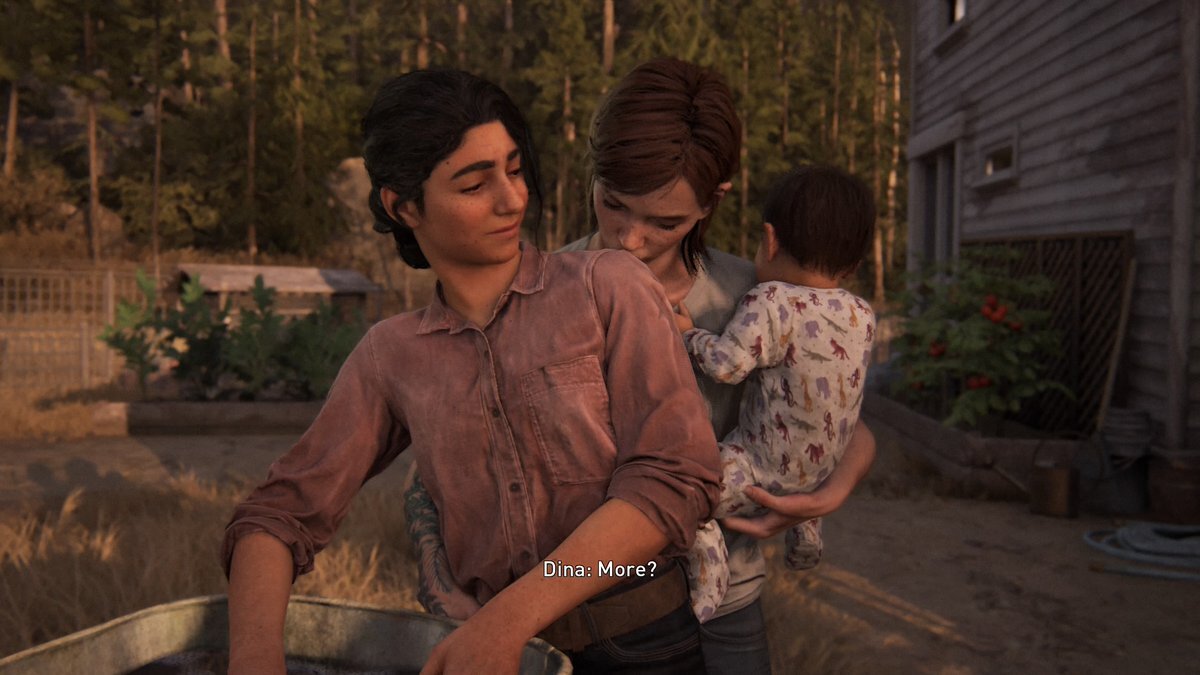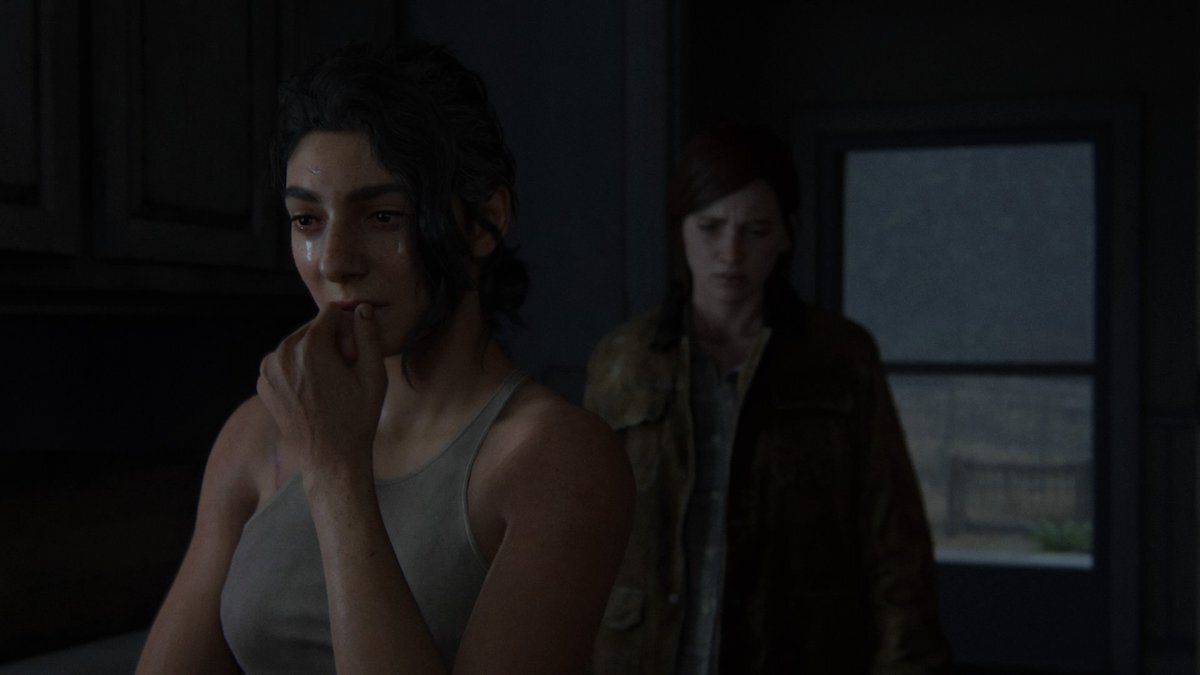Lesbians in Zombieland, a Queer Take on The Last of Us 2
Naughty Dog: The Last Of Us 2
CQ Queerness Rating:
Recommendation Rating:
The year is 2020. Mostly everything is Bad News. Everybody wants something to hate.
Those words are a cliché, but they’ve never felt truer than now. Americans have become experts at hate: we hate politicians, cancel culture or lack thereof, cake jokes, journalists, wearing masks, and apparently also The Last of Us 2. The ironic aspect to the amount of vitriol hurled at TLOU2 is that the message of the game boils down to just how useless hatred is, and it’s why I ended up loving the game so much.
Allow me to quickly rewind to 2013, when The Last of Us was first released. I was working at a popular movie theater/restaurant hybrid in Austin. The money wasn’t great, but everyone who worked there did so because we loved film, and it was easy to sneak peaks of movies during breaks. That summer, I remember incessant chatter among my coworkers about one thing: The Last of Us. “It’s the best game of all time,” and “It’s like a film became a game,” I was told over and over again, until I finally relented and bought the game to judge it for myself.
*The following contains spoilers about The Last of Us and its sequel, The Last of Us 2*
Playing as Joel, the protagonist of the game, I lumbered around as a middle-aged Texan living just outside of Austin. Joel is not unlike many other Texan men I’ve met--he’s the strong silent type but injected into modern day with that ever familiar twang in his speech. The Last Of Us begins in a textbook zombie apocalypse way: terror filled headlines on the news, scary enemies coming at you from all directions, being on the run for safety, scary government being scary, the whole 9 yards.
I played it with excitement and enthusiasm, but when I finished, I didn’t understand the amount of praise being heaped upon it. It was fun, but nothing life changing, and I didn’t identify with the character choices at the end. I preferred a number of other games that year, so when I read all the new hype about its sequel, I felt like it was something I could safely skip.
Then the Coronavirus hit us, and I locked myself inside for months. What better to do than play The Last of Us 2, a high-quality game that was rumored to have queer characters? All of this is to say I’m by no means a “gamer,” but nor do I say that word with derision. I am a casual fan of the Big Name video games, so take this all with a grain of salt! OK now buckle up, we’re about to get violent.
The trademark eyebrow slit set Ellie up for a life gayness.
For starters, even though Ellie is only 14 in the first game she was obviously already a gayby.
Look at that little eyebrow slit! (Okay, it’s a scar, but still!)
The beginning of TLOU2 places us a few years after the end of the original, but Ellie is still just a teen coming in at 19 years old. After starting with some Joel exposition, we move firmly into Ellie territory, and she becomes the primary playable character. The first thing she does is wake up late and accidentally gossip about kissing her friend’s ex-girlfriend (been there, girl), so I immediately knew this was one of the better representations of lesbian love in a major flagship game.
As a lesbian who has been playing video games since early childhood, seeing a lesbian character with a mandatory love interest really validated my experience. Of course there are many variations of queerness throughout various games out there, but most of them are open world or choose your own adventure types, which allow for players to opt in or out of romancing certain people. Since I can’t (and by no means would ever want to) opt out of my queerness in real life, these types of games just weren’t doing it for me.
In TLOU2, you MUST be a teenaged lesbian or you can’t continue to play. I can’t count how many cis/hetero white male characters I’ve been forced to identify with, so I’m extra appreciative of Ellie for flipping the script. If you’re a woman who’s ever been in love with a woman before, this game is Very Relatable Content™. (Literally one of the songs on the official soundtrack is called “Longing.” Longing is FTGO, or For The Gays Only.) The way Ellie and Dina, the two love interests of the game, interact with each other is peak closeted teenage lesbian energy, although it’s pretty clear neither of them are closeted. That’s just the energy! Don’t ask me to explain!
Anyway, the game starts as a slow burn, certainly a much slower pace than its predecessor. We realize that Ellie had an altercation with a townie about her kissing Dina the night before, and she and Dina are called “loud-mouthed dykes.” The next day, he attempts a half-hearted apology by making Ellie “bigot sandwiches” for her patrol to secure the perimeter of the town with Jesse.
Ellie with the all too relatable surprised face after being kissed by a pretty girl!
She gives the sandwiches away to Jesse without a second thought. This might be the first sign of who Ellie really is at her core; she chooses to hold on to her pain and to refuse the transgressor’s attempt at mitigation. Although this is a small point and she’s right to put a hard stop on homophobia, it does set the mood of Ellie’s character up in a way that quickly informs the player that Ellie is right, and more than right, principled.
Shortly after this, we jump into another narrative with two characters thus far unknown in the TLOU universe, Abby and Owen. Here’s where TLOU2 really starts to set itself apart.
While it’s not totally unheard of for a video game to split perspectives like this, it is an interesting move given the sole perspective of Joel in TLOU1. You don’t get a whole lot of time with these newbies, and they eventually decide to murder Joel (like I said, things get violent) which you do see from Ellie’s perspective, so they are soon recognized as “the bad guys.”
Getting real though, Joel’s torture and murder is tough to watch, even though he’s a little unscrupulous. There’s something really visceral about video games in particular compared to other forms of media. It’s one thing to watch a character undergo something horrible on TV or in a book--it’s quite another to forcefully mash the square button while you watch you and your friends get snuffed out.
You feel like you’re really there with the controller shaking in your hand as you pull the trigger and kill someone. Even though the people you kill are technically enemies, The Last of Us does an expert, if sometimes heavy handed, job at humanizing the others through sharp storytelling and the little easter egg letters you find as you play.
Given the stress of the game and its penchant for extreme violence, this all culminates into what can only be considered an intense play. I caught myself holding my breath countless times while playing, sitting literally on the edge of my seat through most of it. I even ended up with a serious backache from tensing up for hours on end. It’s that immersive.
With all that said, I don’t understand the criticisms of this game as “not fun.” I’m extremely anti-zombie genre, and I’m not a fan of gore, but even to me TLOU2 was still really fun! This dramatic discourse is giving me flashbacks to Red Dead Redemption 2, a game I was psychotically excited for but ultimately actually wasn’t fun to play. In this case, the criticism was well-deserved. It really wasn’t fun to accidentally shoot up townies and kill my horse over and over again. Like, that’s a game that’s not fun. TLOU2 is tense, but in my book it's still fun, almost because it’s so tense.
When the stakes are so high and the characters are so well developed, it’s easy to identify with them, even when they behave in morally ambiguous ways. After all, who among us hasn’t done something cringey before? I quickly started to wave away my concerns about Ellie’s rage issues, and began to justify her extreme responses. “Joel was tortured and murdered, we should care!” I told myself, trying to pretend that was a good excuse for slaughtering hundreds of people in gruesome and disgusting ways. “Ellie and Dina are cottagecore goals, fuck the rest of them!” I muttered under my breath while I strangled an enemy to death with my bare hands.
These justifications that a player must make for TLOU characters are what make this series great. While at first I didn’t understand Joel’s choice to save Ellie’s life rather than take a shot at saving humanity at the end of the first game, I’ve since grown up quite a bit (went from 22 to 30) and lost someone significant to me.
Death changes you in dramatic and unfamiliar ways, and I have a lot more grace for Joel than I did then. Looking back, it’s easier to empathize with Joel’s difficult choice to save Ellie, even though it might’ve cost the human race its last shot at immunity. Those tough and selfish choices are a staple of the TLOU universe, a painstaking look at what reality we live in if we allow ourselves to be overcome by our hatred, fear and grief demons. That those themes run parallel to reality speaks to the master artistry of the game.
The majority of TLOU2 is spent experiencing Ellie’s descent into hatred. With her rage fueling her, she rampages through Seattle killing hundreds of people and Infected along the way.
I need to say something about the zombie-ness of the game, but the Infected end up feeling like an unimportant side narrative at times. They’re there, but they certainly aren’t the meat and potatoes of the game, nor what’s most compelling. Killing and running from hordes of creepy crawlies is exciting, but it’s ultimately empty calories in a game that’s much more about human nature. I spent most of my zombie killin’ time wishing to get back to the main narrative, because Ellie + Dina = <3.
Look how CUTE:
Ellie doing the trademark lesbian thing of watching their girlfriend sleep.
Dina pinning Ellie down demanding a detailed answer to a very personal question. Gay.
Longing looks.
Ellie and Dina are THE quintessential lesbian couple of the year! Look at these longing looks!
Only queer girls would ask this question.
Dina reveals in Seattle that she’s pregnant. (Which ends up being kind of a weird theme of the game once we learn that Owen’s new girlfriend is also pregnant? And then Ellie feels really bad for killing her because she was pregnant… I’m not nuanced enough to understand these pregnancy themes, it didn’t work for me, but I do appreciate the unique narrative). Owing to pregnancy morning sickness, Dina opts out of roaming around Seattle with Ellie. Without her best girl by her side, Ellie ends up venturing out into Seattle alone, which ramps up the scary factor as she dodges dangerous situation after post-apocalyptic crisis with no backup. Did I mention I’m a wimp that hates zombie games?
The story progresses fluidly and authentically, which may be my favorite part of the gameplay itself. While I love an open world universe, this narrative gameplay is easier to sink your teeth into as you are guided into each sequence by an invisible Naughty Dog hand. The scenes move seamlessly into each other, which does end up making it akin to watching a movie that you can physically engage with. Did you spend an inordinate amount of time playing guitar on the touchpad or are you normal?
Also gay: playing guitar by yourself in a dark room while it storms outside. So many feelings.
I enjoyed the aspect of not having to make too many choices; the game leads you to where you need to be and the plot unfolds at exactly the right times. I’ve experienced some awkward gameplay with other games where I’ve accidentally played the entire main storyline till the end and “finished” the game only to be left with 1,000 side missions I forgot about. All those missed opportunities are just too much for this Sagittarius to handle.
Ellie takes a walk through Seattle’s gayborhood.
The main strength of this game is definitely the cinematic flow, which is almost hypnotizing when you’re not being jolted in and out of action. This didn’t work for a lot of people -- I’ve read a few reviews that protested the length of the cutscenes -- but to me it enhanced the storytelling and gave my body a few precious moments of rest in between high octane killing sprees.
When I reached what I thought was the end of the game, TLOU2 switched it up on me and I got vaulted into Abby’s POV. I spent about the first 20 or so minutes thinking this was just an extended dream sequence or memory, like many other side plots along the way, but we end up sticking with her for a loooong time. Like, a really long time.
Switching into Abby’s perspective when you’re so close to completing the stated goal is jarring. The game flashes back to several points in Abby’s past, including many iterations of nightmares when Joel kills Abby’s father at the end of the first game. In another twist, it turns out that Abby is the daughter of the surgeon who was working on Ellie at the end of the first game. Now more than ever we begin to understand that every life in this game has meaning in one way or another. Even though the surgeon was just a random NPC, his story ended up being a substantial part of the sequel. This messaging tracks throughout the game, as we come to identify with many of the antagonists and empathize with them even when they’re subjected to violence by our own hand.
Abby moves us through her narrative, telling the lonely story of an awkward teenage girl who loses her only parent and the only society she’s ever known, The Fireflies. She becomes hardened as she moves into the Washington Liberation Front, better known as the WLF or Wolves. The WLF does battle with a neighboring faction of radicals, the Seraphites, also known as Scars.
Notably, lots of players really hate Abby for… weird reasons, but she’s actually a very lovable character with just as much to root for as anyone else. Her killing Joel is no different than Joel killing her father or the hundreds of others Joel hunted in the first installment. Her brutality is no different than Ellie’s, either.
Even though their factions are sworn enemies, Abby almost dies but is saved by a pair of young Seraphites on the run, Lev and Yara. The lines of where our hearts should lie starts to become really hazy here, especially when Abby chooses to risk her life to help Lev’s sister, Yara. The three of them help each other, defying their own organization’s orders to kill each other on sight.
Yara tells Abby about Lev’s motivation to leave the Seraphites.
As the story develops, it’s revealed that Lev is on the run specifically for presenting as male after being ordered to marry a village elder. The Seraphites are major transphobes and want to kill Lev for living his truth, so he and Yara take off to save their lives. After a last ditch effort at rescuing their mom, Yara dies, leaving Lev and Abby on their own.
After playing through all this backstory and exposition from a different perspective than Ellie/Joel, it’s harsh to be pushed back into the hate story of Ellie vs. Abby. Once I had the full picture, all I wanted was for Ellie and Abby to overcome their differences and be friends! And live happily ever after with Dina and Owen ♥
Of course that’s not what happens, though. Instead we’re subjected to a much more harrowing take, where these two sides of the same coin hunt each other down in a merciless circle of hellish violence. They manage to escape each other and survive thanks to Lev’s benevolence, each living their own lives for quite some time. We finally get to see what Ellie needs--a happy, quiet life with Dina in the countryside.
Yes, more of this!!
Ellie dadd-ing out with the baby.
The scene is pretty idyllic, and I would’ve loved for the game to end there. That would’ve been the happiest ending TLOU2 could’ve possibly had given all the carnage that had already taken place.
One small happy family.
Something is nagging Ellie, though. She has violent flashbacks about her troubled past. Dina and Ellie are later visited by Joel’s brother, Tommy, who tells Ellie there’s a lead on finding Abby. It’s clear that Tommy expects Ellie to jump at the chance to hunt Abby down, but she demurs and Dina chases him out of the house. Something in Dina knew Ellie wouldn’t be able to let this sleeping dog lie.
I sat at my tv pleading with Ellie to be rational, to lay down her weapons and just live her damn life! Hop on that tractor and take that baby on another joy ride! Light up with Dina and talk about the bad old days! My heart ached when she decided to abandon Dina and their baby, but I knew that she has too much baggage now, and a primal part of her has taken over.
Ellie how COULD you do Dina like this?
Ellie takes off again to find Abby and murder her, and the narrative pulls us back and forth between Abby and Ellie for a short time.
Abby and Lev are as happy as circumstances would allow, chattering back and forth about their new lives with the Fireflies they’ve been searching for this whole time. With elation, Abby finds a radio and contacts what is seemingly the last faction of Fireflies left. Again, like some sort of rookie, my heart sang for Abby and Lev. They’re going to finally find their community and find stability! But of course that’s not how it goes.
The placid stage of the game ends here, when Abby and Lev are ambushed by a random militia group that imprison them for slave labor. Yep, it’s that grim.
We shift back into Ellie’s POV as she continues to hunt Abby down, finding their labor camp and freeing the slaves in the process. As the freed people steam past her, she implores them for intel on Abby. “She’s probably already dead,” they tell her.
Ellie wanders down to the beach and finds a plot of crucifixes. Like, human sized ancient Rome torture device crosses. Yep, it’s that grim.
She finds Abby and Lev tied up on crosses, probably just a few moments before death. Abby’s trademark braid has been shaved off, and she looks TERRIBLE. She asks Ellie to help her, and Ellie obliges. But Ellie only does that so they can battle once again, because she is actually the worst, is plagued with demons and totally incapable of moving on.
Ellie is so consumed by her past, her anger, her resentment, and her rage that she actually gambles Lev’s last chance at life to force Abby into a harrowing round of hand to hand combat. Lev is the only reason Ellie, Dina and Tommy are still alive. He is the one who made Abby back off, but that’s not enough for Ellie.
During their struggle, Ellie seems to finally come to understand the futility of violence, letting Abby and Lev escape into the open water while she catches her breath alone on the foggy shore. It’s unclear what finally did it, and I think it’s meant to be vague. Just as there is hardly ever a true turning point in one’s life, there isn’t one for Ellie either. Most of life is a series of decisions, each one mundane and similar to the one before it. Ellie just finally made a new decision instead of retreading through what she thought she was meant to do and continuing to carry all of that hatred with her.
After all that, Ellie finally relents.
This is the ultimate message of the game: hate gives you nothing, and you are free to choose to let it go. Hate takes and takes and takes, and it’s endlessly meaningless. It will take your peace, your family, and your love and leave you an empty shell of a person.
I finished the game and was in a haze for the rest of the day. This game sat with me and toyed with my imagination for weeks afterward. It’s no surprise to me that I am finally finishing this review nearly a full month after completing the game itself.
The futility of hate is something I think we all need to learn more acutely. It may have been a hell of a time arriving to this point, but meaningful art should be challenging.
It’s by no means my favorite game ever, but I do think it has earned its reputation for existing in the echelon of “best ever.”
TLDR; the game is great. Don’t let the haters win.
All image credit to Naughty Dog: The Last Of Us 2.





